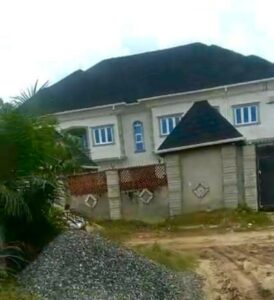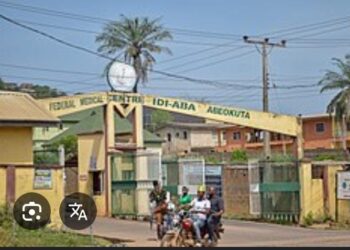Investigation Exposes ₦273m Fence Scam Masquerading as College Project

By The Merit Newspaper Correspondent
Lagos, Nigeria — An investigation has uncovered how the former Provost of the Federal College of Education (Technical), Akoka, Lagos, Dr. Wahab Ademola Azeez, allegedly falsified documents to deceive two key federal institutions — the Tertiary Education Trust Fund (TETFUND) and the Bureau of Public Procurement (BPP) — into approving funding for the construction of a perimeter fence around what he claimed was a “satellite campus” of the College.
The project, valued at over ₦273 million, was approved despite the fact that FCET Akoka has never operated a satellite campus anywhere in Nigeria and owns no land for such a purpose.
The Satellite Campus That Never Existed
Documents reviewed during the investigation show that Dr. Azeez, whose tenure ended under the statutory single five-year term limit for principal officers of federal tertiary institutions, wrote to the BPP on November 15, 2023, seeking a Certificate of No Objection for the “emergency” award of a contract to Messrs. Enteamoore Nigeria Limited.
The letter — referenced FCET/AR/POL/1/VOL.1/196 — claimed the project was to fence a plot of land in Oribanwa, Ibeju-Lekki, Lagos State, allegedly belonging to the College, to prevent further encroachment by “criminal elements” and land grabbers.
Ordinarily, such a contract should have gone through public tender. However, the Provost argued for emergency procurement, claiming that secrecy was necessary to avoid alerting the alleged encroachers. He further stated that Messrs. Enteamoore Nigeria Limited had already mobilized to site for clearing and fence layout.
A Private Estate Disguised as a College Facility
Investigations revealed that the land in question is not owned by the College but is part of a 12.9-hectare estate purchased in 2001 by members of the FCET Staff Cooperative Society from the Igi Aba family. The property was acquired under the “Staff Housing Development Scheme” and paid for with individual staff contributions — including those of the Provost himself.
READ ALSO:Tinubu Launches Steel Revolution, Jobs for 500,000 Ahead
Records show that in 2010, the land allocation committee of the Cooperative levied each member ₦15,000 for fencing, a fee the Provost also paid. No official College records list the property as belonging to FCET Akoka, and all related correspondence was handled by the Cooperative chairman, not the institution.
Today, the estate contains private residences, including the Provost’s personal house. When investigators visited the site recently, no evidence of perimeter fencing was found, contradicting the Provost’s claim to the BPP that work had commenced.

Fabricated Designs and Misleading Documents
Further findings reveal that to bolster his submission, Dr. Azeez commissioned a fictitious architectural design for a perimeter fence and gatehouse, complete with a false FCET inscription, to create the illusion of a legitimate College project.
This action directly contravenes federal policy, as no Nigerian federal tertiary institution has been permitted to operate satellite campuses since the administration of former President Olusegun Obasanjo.
Based on the misleading documents — including a letter of award to the contractor, a bill of quantities, and a TETFUND “approval in principle” — the BPP granted approval for the project in December 2023, reducing the contract sum to ₦240 million, with funding to come from TETFUND.
Protests, Tenure Dispute, and Removal
Before funds could be disbursed, staff and students of the College staged mass protests against Dr. Azeez’s administration, citing high-handedness, corruption, and attempts to manipulate the Federal Ministry of Education into extending his tenure beyond the legally allowed term.
The 2023 Federal Colleges of Education Act stipulates that all principal officers serve a single five-year term. His alleged intimidation of staff and students, combined with the financial scandal, culminated in his removal from office.
TETFUND and BPP: Mandates and Oversight
The Tertiary Education Trust Fund, established in 2011, manages and disburses education tax to government-owned tertiary institutions in Nigeria. The Bureau of Public Procurement, created under the Public Procurement Act of 2007, regulates federal procurement, ensuring transparency and preventing fraud.
How Dr. Azeez managed to secure their approval for a non-existent campus project remains a striking example of the vulnerabilities within federal oversight systems.
READ ALSO:Nigeria’s Lost Formula for Good Governance Is in This Photo
Had the disbursement gone ahead, the project would have diverted hundreds of millions of naira in public funds to fence a private estate — a move that, according to observers, would have amounted to fleecing both institutions and the Nigerian taxpayer.
















